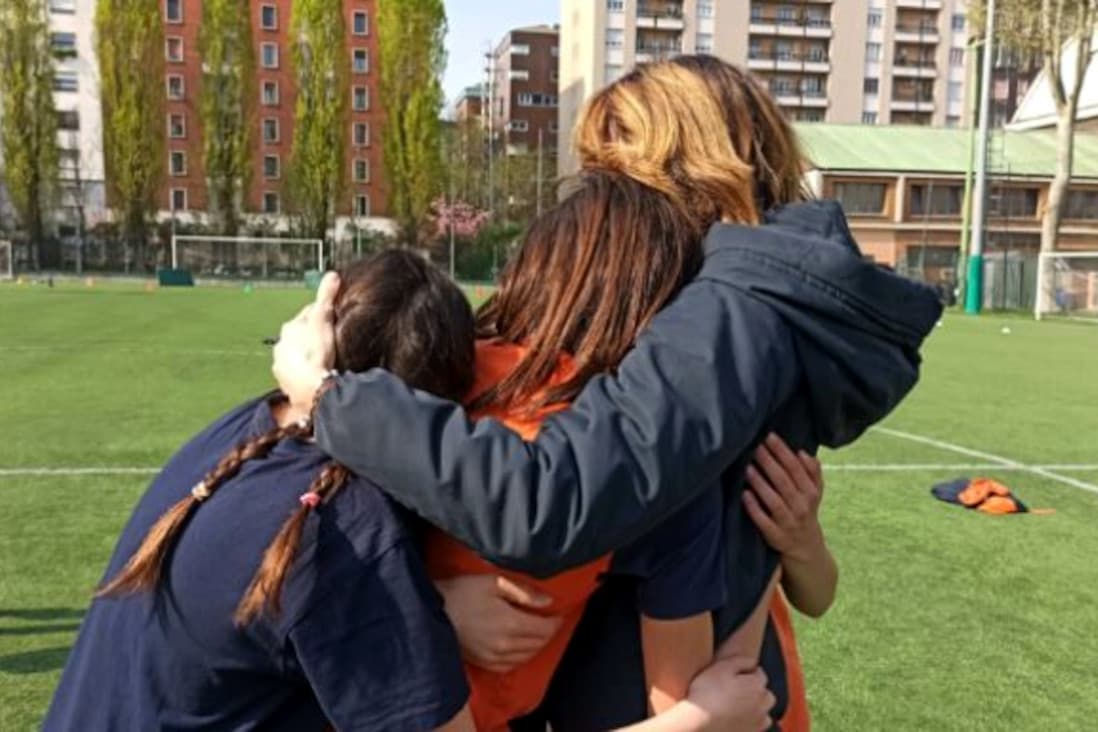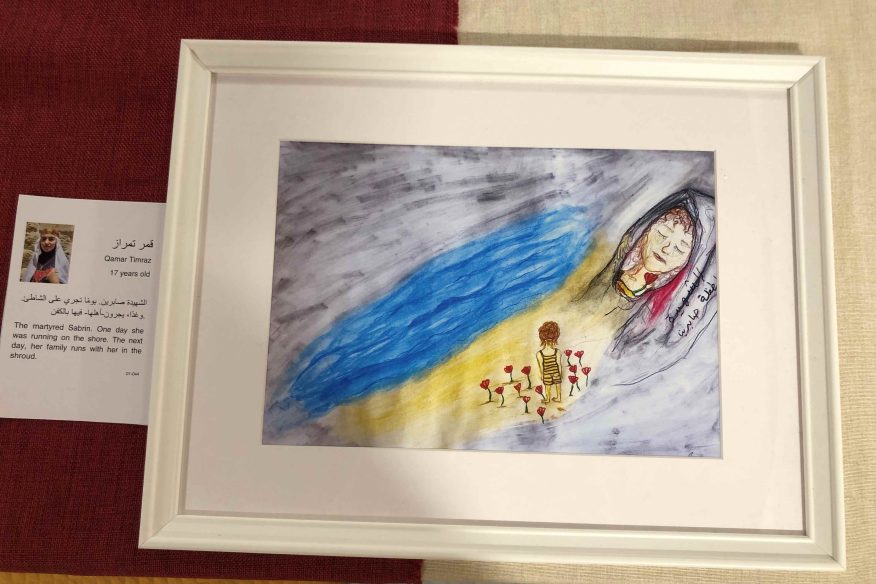Ukrainian refugees welcomed in Milan

The outbreak of war in Ukraine and the desire to respond to the emergency. The Jesuits of the Milan community – San Fedele, Leone XIII and Villapizzone- responded to the crisis created by the outbreak of war in Ukraine by identifying the Leone XIII Institute as the most suitable place to welcome refugees.
The building has a large area set aside as quarters for guests, part of which could be dedicated to this type of hospitality, after making some adaptations,” Fr Francesco Cambiaso states. “It was a matter of preparing the premises: kitchen, laundry and common room. The rooms only needed minimal alterations”. The collaboration with the Cooperativa Farsi Prossimo of the Ambrosiana Caritas was invaluable. In the meantime, another small reception experience had begun at San Fedele.” As is the case in almost all cases, a Ukrainian woman with her daughter was introduced to us with her urgent need in an indirect way, and we felt we could not refuse her.”
Both spoke English. “This is rare among Ukrainian refugees: of the eleven others who were given assistance and then housed at Leone XIII, only a mother and daughter knew a little Italian”. The difference in language proved to be a significant obstacle. “Of course, the smartphone and Google translator help, but for the refugees, to fend on their own is obviously very limited because of the language barrier and not speaking any other language but Slavic”.
Now thirteen people in all have been welcomed, mothers with their young children, and an elderly couple. A further eight people are arriving at the Schuster Centre, where the ‘palazzina’, a building behind the church that is currently not being used, has been converted into a reception centre thanks to the prompt response of the Steering Committee, several volunteers, the Jesuits and the generosity of a Milanese bank.
Not just hospitality but interpersonal skills
“Good to see that if we want to we are capable of solving problems. Disappointing to see that we are definitely racist, and also irrational. San Fedele moreover also hosts other refugees,” Cambiaso explains. The response of people has been strong and generous. “Adequate interpersonal skills must be associated: these are special situations, marked by pain.” The theme of trauma emerges as central: “it manifests itself in many ways, especially with depressive symptoms and – for the most part – prevents realistic planning of the stay in Italy. Unable to fully accept being a refugee, most live in the illusion of an imagined return … “soon,” and do not activate all the resources that would be helpful in improving their situation. The negative consequences of this phenomenon fall mainly on minors: if mothers delude themselves that they can return “…in a little while…”, the risk is that almost nothing is done to include the children accompanying them. As for the Cooperatives dealing with them: many refugees, few workers; mostly good and motivated, but few. You know, the numbers have to add up.
From the reponse, our limits and resources
Peace is a complex phenomenon related to justice. It is built up little by little over time. But it is touted as the result of a generic rejection of war: a misleading simplification. On conflict management – including political – we have not progressed. Finally, every refugee brings devastating stories: it would require constant and prepared proximity. Indeed, we see that there is no small amount of work required by the community we welcome. We are not always adequate; in doing, limitations emerge. With Ukrainians, however, our city has proved sensitive.”
